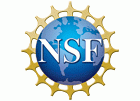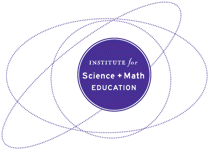Designing ‘productive uncertainty’ into investigations to support meaningful engagement in science practices

- Teachers should routinely incorporate productive uncertainties in instruction so students can experience the surprise, puzzlement, and disagreement that drives science investigations.
- District staff & PD Providers should engage teachers in complex scientific activity with productive uncertainties and support adapting instructional materials to include those elements.
- School leaders should expect to see students trying to work through uncertainties in how to carry out investigations, rather than strictly following procedures or rules.
What is the Issue?
We want students to engage from the earliest ages in science and engineering practices with sincere curiosity and purpose. Science investigations can be viewed as “working through uncertainty.” However, 3D instructional materials often try to support engagement in science practices by making them very explicit and scaffolding the process to make it easy to accomplish—arguably, too easy. An alternative approach that emphasizes productive uncertainty focuses on how uncertainty might be strategically built into learning environments so that students establish a need for the practices and experience them as meaningful ways of developing understandings.
Authors:
BY EVE MANZ, SARAH ARNOLD, COLLEEN BAZINET, BETSY BECKERT, DIANA GARITY, GRISELDA GEORGE, PAT O’BRIEN, LAUREN REILLY | MAY 2019
Reflection Questions
- Do students know why they are engaging in a specific practice? Does your curriculum engage them in the practice without motivating why it is useful?
- Where do students get puzzled, disagree, or not see what they are “supposed to?” How can those investigation moments motivate engagement in science and engineering practices?
Things to Consider
- Scientists routinely work through waves of uncertainty to develop knowledge throughout an investigation. Studies of how scientists conduct investigations show that they grapple with uncertainty: not only about how to develop an explanation but also how to represent the world in the form of an investigation. Scientists question what to pay attention to, how to measure what they care about, and how to make sense of an investigation that is not performing as it “should.” Uncertainty in scientific activity motivates scientists’ engagement in practices. Scientists argue because their peers disagree. They explain because results are confusing or surprising. They engage in collaborative problem solving in order to pull off investigations.
- Instruction is often designed as a sequence of steps for students to follow in an investigation, which has problematic consequences. Practices are often implemented as a sequence of scaffolded activities: controlling variables, applying measurement tools, graphing data, then supporting a claim with evidence. The purpose is to move students toward seeing what they are supposed to see to support a desired content understanding, e.g., that plants need light to grow. Natural student differences in sense-making and activity— different ways of measuring or interpreting results—are then viewed as mistakes to be corrected, rather than as productive resources.
- Practices become meaningful when they are used to address and manage uncertainties. When uncertainties in how to design an experiment, what to use as evidence, and how to interpret results are seen as productive, they can be used to support and deepen meaningful engagement in practices. As students realize they have come to different conclusions, they want to engage in argumentation and explanation. Students can develop shared standards for what counts as a good investigation, argument, measure, or question through this process. Children can be supported to engage with scientific uncertainty from the earliest years of schooling.
Attending to Equity
- All students have the right to learn how the practices of science and engineering can serve their purposes and the interests of their community. We should disrupt 3D instruction that directly teaches or marches students through the practices without attention to how those practices can be seen by students as purposeful.
- All students benefit from seeing that working through uncertainty in investigations is normal. Students from traditionally marginalized backgrounds often experience highly specified investigations and remedial instruction. Engaging them with productive uncertainty allows them to develop identities as active and valued sense-makers.
Recommended Actions You Can Take
- Familiarize yourself with the complexity of scientists’ efforts to represent phenomena in investigations. Explore the ideas in this discussion. As you see accounts of scientists’ investigations (e.g., this story), attend to the intellectual and physical effort that goes into figuring out how to collect evidence to test models and theories.
- Find uncertainties in investigations that can set a purpose for the practices. As you prepare investigations, attend to places where students might feel puzzled, make different choices or come to different conclusions, and where making uncertainty visible would motivate the need to engage in sense-making. Read this vignette to see a detailed example.
- Move beyond an “all or nothing” approach to uncertainty. Look for ways to strategically make specific aspects of an investigation uncertain (e.g., ask students to discuss two choices for data analysis). See these examples for ideas.
ALSO SEE STEM TEACHING TOOLS
- #19 Conducting Investigations
- #32 Why Focus on the Practices
- #37 Facets of Thinking
- #47 Multiple Perspectives
STEM Teaching Tools content copyright 2014-22 UW Institute for Science + Math Education. All rights reserved.
This site is primarily funded by the National Science Foundation (NSF) through Award #1920249 (previously through Awards #1238253 and #1854059). Opinions expressed are not those of any funding agency.
Work is licensed under a Creative Commons Attribution-ShareAlike 4.0 Unported License. Others may adapt with attribution. Funded by the National Science Foundation (NSF). Opinions expressed are not those of any funding agency.


 Email Feedback
Email Feedback


